
Notion is widely known for its flexibility in organizing projects, documents, and workflows, but when it comes to dedicated client portal functionality, it has its limitations. Businesses that require a structured, secure, and feature-rich client portal often seek alternatives that offer advanced access controls, branding customization, and client communication tools.
A great client portal should simplify collaboration by allowing businesses to securely share files, track project progress, and communicate in a centralized space. Whether you need a solution for managing client approvals, onboarding new customers, or providing ongoing support, there are powerful alternatives to Notion that cater to different business needs.
In this guide, we’ll explore the best Notion Client Portal alternatives, highlighting their features, pricing, and suitability for different industries. If you’re looking for a platform that enhances client relationships while keeping operations organized, this article will help you make an informed decision.
Quick Summary
- FuseBase – Best for custom-branded client portals with AI, automation, and collaboration
- Zoho Client Portal – Best for Zoho CRM users needing basic client access
- Huddle – Best for secure document collaboration in regulated industries
- Glasscubes – Best for team and client collaboration in shared workspaces
- Moxo – Best for mobile-first, high-touch client engagement
What is Notion Client Portal?
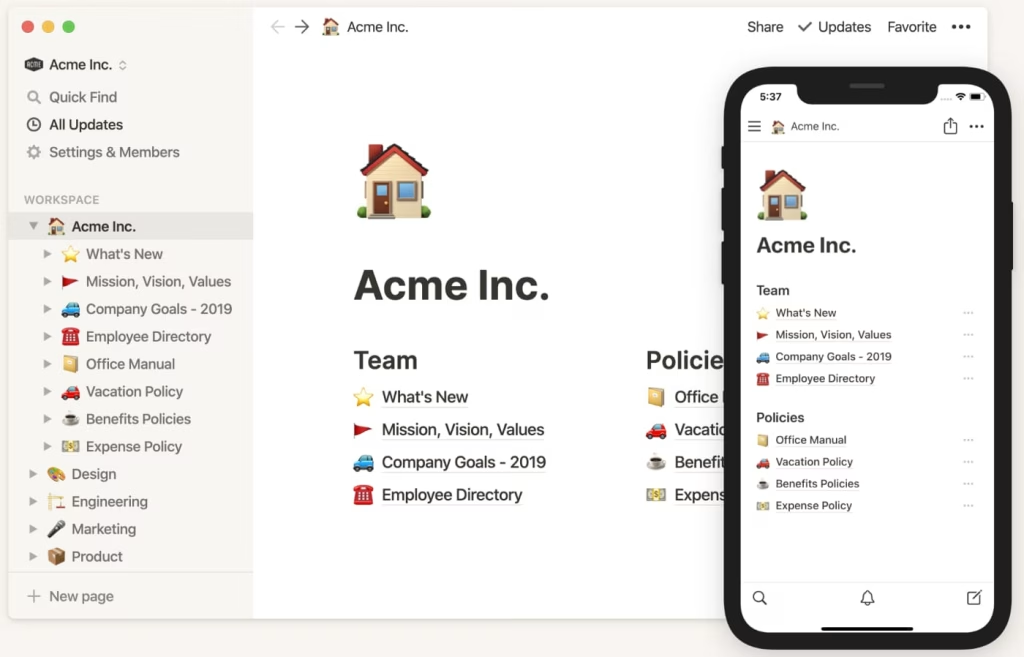
Notion Client Portal is a customized workspace within Notion that businesses, freelancers, and agencies use to facilitate client communication, document sharing, and project management. While Notion does not offer a built-in client portal, users can configure it by setting up shared databases, project tracking boards, and collaborative workspaces.
By leveraging Notion’s flexibility, companies can create centralized hubs where clients can access important information, receive updates, and collaborate on tasks. However, since Notion is primarily designed as a note-taking and knowledge management tool, it lacks essential client-facing features like granular access control, automated workflows, and e-signatures, which are typically found in dedicated client portal solutions.
Advantages of Notion Client Portal
- Highly Customizable – Users can create tailored dashboards, databases, and templates to fit their needs.
- Collaboration-Friendly – Supports real-time editing, commenting, and @mentions for seamless team and client communication.
- All-in-One Workspace – Combines documents, project management, and databases in a single platform.
- Cost-Effective – More affordable compared to some dedicated client portal solutions.
- Integrations – Connects with third-party tools like Slack, Zapier, and Google Drive.
Disadvantages of Notion Client Portal
- Limited Client-Specific Features – No built-in invoicing, client messaging, or advanced access controls.
- Security & Permissions Gaps – Lacks granular permission settings, making it harder to restrict sensitive data.
- No White Labeling – Clients will see Notion branding, which may not look professional for external use.
- No E-Signature or Payments – Unlike dedicated client portal software, Notion does not support contracts, approvals, or payments.
- Learning Curve – Requires customization and setup time to function as a client portal.
Notion Pricing
Free Plan: $0 per user/month – Basic collaboration features, unlimited pages & blocks, and limited file uploads.
Plus Plan: $10/user/month (billed annually) or $12/user/month (billed monthly) – Unlimited file uploads, version history, and collaborative workspaces.
Business Plan: $20/user/month (billed annually) or $24/user/month (billed monthly) – Advanced permissions, SAML SSO, and better admin controls.
Enterprise Plan: Custom Pricing – Everything in Business, plus security & compliance features, dedicated support, and custom integrations.
While Notion can be adapted as a client portal, businesses that require a more structured, secure, and feature-rich solution may benefit from dedicated Notion alternatives designed specifically for client collaboration.
5 More Alternatives to Notion Client Portal
If you’re looking for a client portal alternative to Notion with more robust client-specific features, here are five more platforms that offer better access controls, automation, and secure collaboration.
1. FuseBase (Best for Customizable & AI-Powered Client Portals)
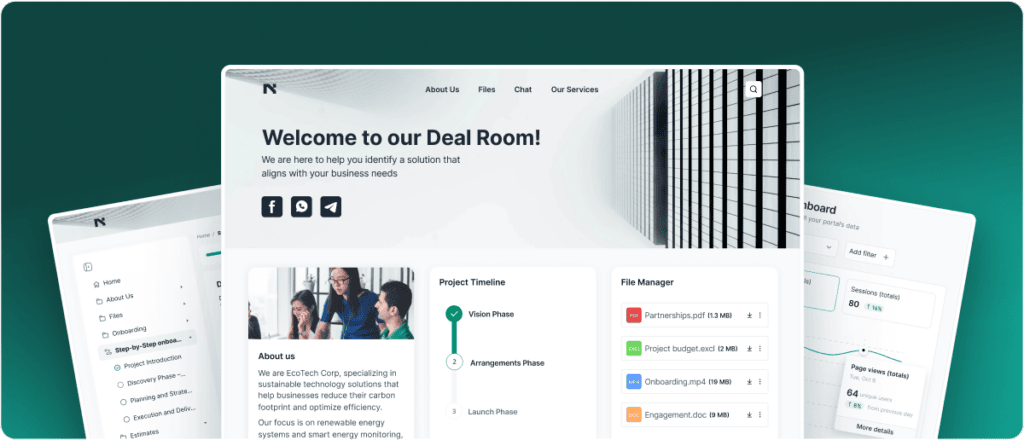
FuseBase is a highly flexible and customizable client portal platform designed for businesses that need secure document sharing, task management, and AI-powered automation. Unlike Notion, it provides granular permission controls, custom branding, and built-in integrations to enhance client collaboration.
Key Features
- Fully customizable workspaces and dashboards
- Secure document storage with advanced permissions
- AI-powered assistant for document search and automation
- White-label branding for a professional client experience
- Integrations with Google Drive, Slack, and project management tools
- Built-in e-signature support for approvals
Pricing: Starts at $32 per month.
🌟 Example of how Smart Portals transform your work:
2. Zoho Client Portal (Best for Small Businesses & CRM Integration)
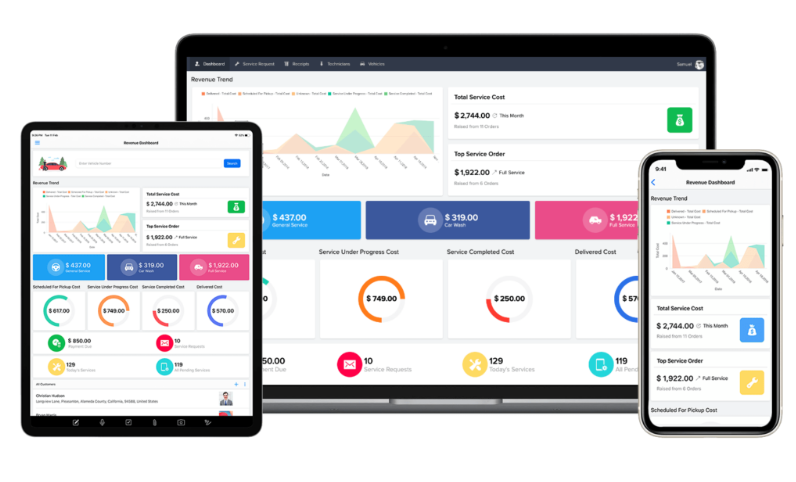
Zoho offers a comprehensive client portal solution as part of its suite of business tools. It allows businesses to manage client communication, share documents, and integrate with Zoho CRM, making it an excellent option for service providers and small businesses.
Key Features
- Seamless integration with Zoho CRM and other Zoho apps
- Secure document sharing and collaboration
- Customizable workflows and task management
- Client self-service options for requesting services and updates
- White-label branding for a professional experience
Pricing: Starts at $14/user/month as part of Zoho One.
3. Huddle (Best for Enterprises & Government Organizations)
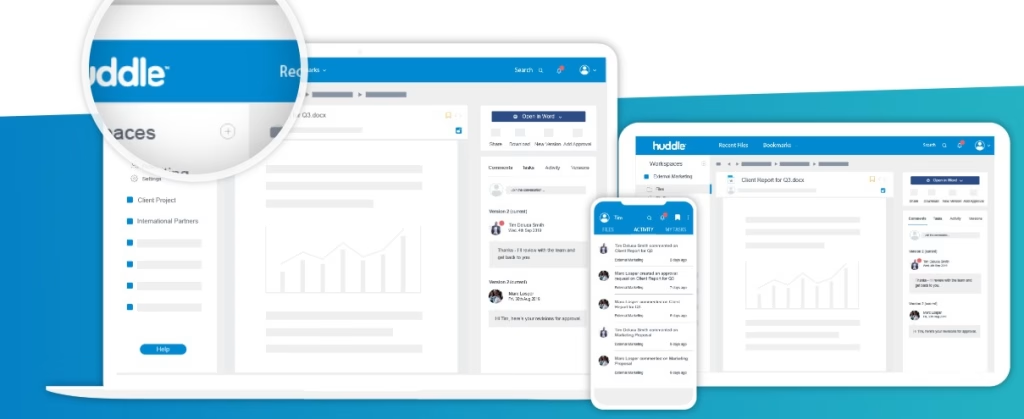
Huddle is a secure collaboration and client portal solution designed for businesses that require strict security measures, such as financial firms, legal professionals, and government agencies. It focuses on document collaboration and secure file sharing.
Key Features
- Bank-grade security with multi-factor authentication
- Advanced permission settings for document control
- Secure client collaboration with built-in approvals
- Automated document versioning and audit trails
- Integrations with Microsoft 365 and Google Drive
Pricing: Custom pricing based on business needs.
🌟 Another example of Portals that transform your work:
4. Glasscubes (Best for Internal & External Collaboration)
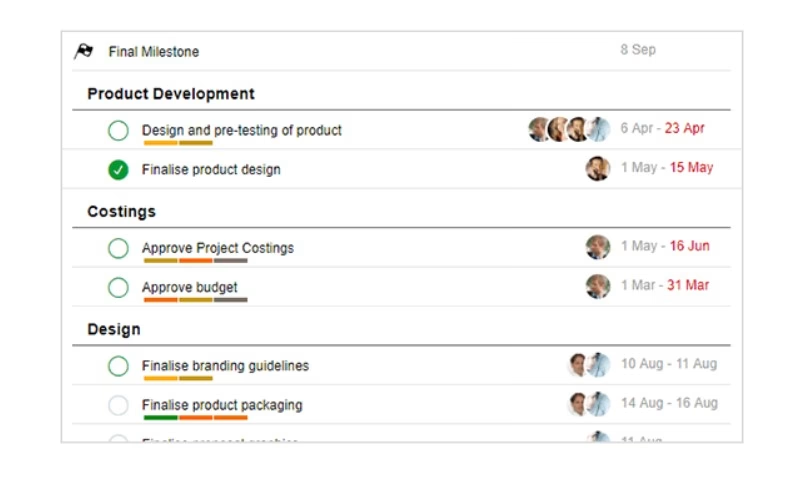
Glasscubes is a cloud-based client portal and collaboration tool that offers a structured way to manage client communication, file sharing, and task management. It’s ideal for businesses that need a central space for working with both clients and teams.
Key Features
- Easy-to-use file-sharing system with version control
- Secure, permission-based access for clients and team members
- Task and project management tools
- Custom branding options for a professional look
- Automated workflows to streamline business processes
Pricing: Starts at £14.40 per user a month.
5. Moxo (Best for End-to-End Client Engagement)
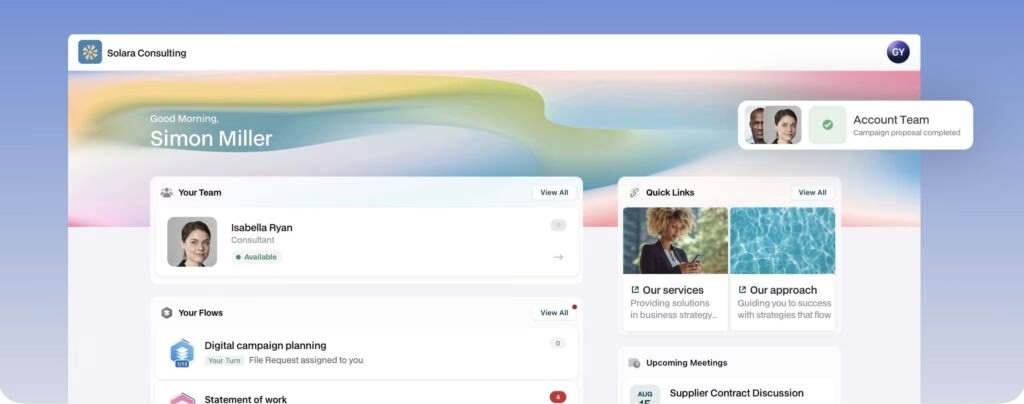
Moxo (formerly known as Moxtra) is a client interaction hub that provides businesses with a dedicated client portal for messaging, file sharing, and workflow automation. It’s great for businesses looking for a mobile-friendly client engagement tool.
Key Features
- Secure messaging and video conferencing for client interactions
- Digital document signing and approval workflows
- Custom branded client portals for a seamless experience
- AI-powered automation for task management
- Bank-grade security and compliance for data protection
Pricing: Custom pricing based on enterprise needs.
Final Thoughts
If you need a dedicated client portal with more features than Notion, these alternatives provide better security, collaboration, and automation. FuseBase stands out as the best alternative, offering powerful AI-powered tools, white-label branding, and granular access controls for businesses needing a fully customizable, client-centric platform.
For businesses that need CRM integration, Zoho is a strong option, while Huddle and Glasscubes focus on secure collaboration. If you’re in need of e-signatures and compliance tracking, MyDocSafe is a great fit. Moxo is ideal for businesses looking for a client engagement hub.
Choosing the right Notion Client Portal alternative depends on your specific needs—whether it’s security, branding, automation, or seamless client collaboration.

